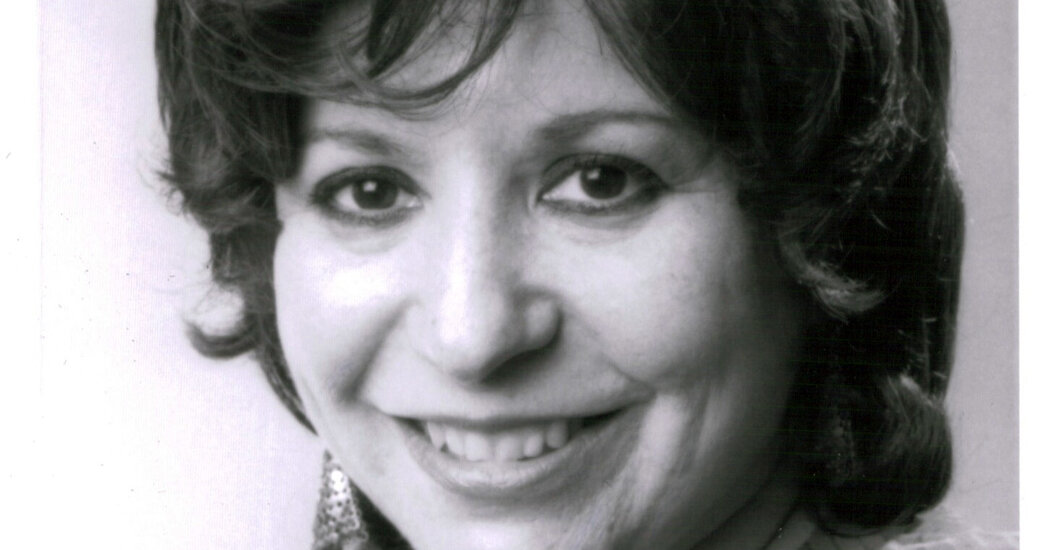
Florence Berger, a Cornell University professor who found a second calling as a pro bono matchmaker, leading her to successfully arrange some two dozen marriages, died on July 13 at her home in Charlottesville, Va. She was 83.
The death was confirmed by her son, Larry, who said the cause was complications of multiple sclerosis.
Ms. Berger was a popular presence on the Cornell campus in Ithaca, N.Y., where she became an expert in the hospitality industry, teaching courses in organizational behavior, human relations and creativity, writing three academic books and gaining distinction as the first woman to be elevated to full professor at the hotel administration school.
In 1999, four years before she retired, she received the university’s highest teaching honor, the Stephen H. Weiss Presidential Fellow Award for Distinguished Teaching.
But she was perhaps best known for her work as a shadchante, the Yiddish word for matchmaker in Ms. Berger’s Jewish tradition. She arranged marriages over more than four decades, almost all of which endured, according to her son. (The only couple that divorced was the one that didn’t invite her to their wedding.)
“I am fearless when it comes to matching,” Professor Berger told Melanie Thernstrom for a 2005 article in The New York Times Magazine, one that prompted a deluge of letters from readers seeking her help in snaring spouses.
Ms. Berger was deliberate in scoping out prospective mates, requiring them to meet two tests: They had to be at least 30 years old, and they had to agree to go on at least two dates.
“Knowing that even if you fail, you’ll still have dinner next week makes everyone relax,” Ms. Thernstrom wrote.
She added: “On the second date, Florence says, people start to see the way they are really going to see each other. And Florence’s theory has been confirmed: Many of her couples told her they would not have gone out a second time if that hadn’t been the bargain.”
Ms. Berger demonstrated her feel for human chemistry at the young age of 16, when she was struggling with a science fair project at West Hempstead High School on Long Island. She then enlisted a cute, smart boy — he played on the rival Freeport High’s basketball team — to help her build an electronic number cruncher.
His name was Toby Berger. He became an electrical engineering professor at Cornell. They married in 1961 and were together for 66 years, until he died in 2022.
In addition to her son, Ms. Berger is survived by her daughter, Elizabeth Mandell; her sister, Trudy Cohen Labell; and four grandchildren.
The first person she matched with a spouse was her brother-in-law, Robert Berger, Toby’s brother. Robert and his wife, Barbara, were married for 41 years until her death in 2009. Ms. Berger then matched him with his second wife, Harriet; their marriage lasted 11 years, until her death last year. It was Ms. Berger’s last match.
Ms. Berger’s son said that he and his sister married too young for their mother to choose their spouses. “Both my sister and I got married before age 28 so as to have some say in the matter,” he said.
Among the people she paired were the daughter of Cornell’s former president, Frank H.T. Rhodes, with one of her former graduate assistants. She also arranged a match for her secretary, but the couple eventually broke up.
Ms. Berger never sought or accepted remuneration, but sometimes the newlyweds would send her a gift. And over the years she was notified of the scores of births that resulted from her introductions.
“She wanted people to be happy, and she wanted them not to be lonely,” Larry Berger said in an email. “So matching single people — whether they wanted it or not — was a natural expression of all of those characteristics.”
(According to Jewish tradition, it takes only three shidduchim — matches of enduring love — for a shadchante to secure a place in heaven.)
Florence Cohen was born on May 3, 1940, in the Bronx to Joseph Cohen, a pharmacist with his own pharmacy, and Belle (Krotin) Cohen, who helped manage the business.
She graduated from Goucher College in Baltimore with a bachelor’s degree in psychology in 1962, earned a master’s in education from Harvard in 1965 and received a doctorate in education in 1979 from Cornell.
She applied her psychological training as Cornell’s assistant dean of students, then decided to teach, drawn to the hotel administration school (now the Nolan School of Hotel Administration). There, her son said, “the art of being a Jewish mother was professionalized — keeping everyone safe, well-fed, making them feel welcome, and managing it all.”
“As for her avocation of matchmaking, she was always drawn to people and had great intuition about what made people tick,” Larry Berger said, “and she was driven by what she called her ‘Noah’s Ark Complex’ — the impulse that people should be paired off two by two.”
Ms. Thernstrom characterized Ms. Berger, whom she met through her son, a friend, as “the kind of old-fashioned matchmaker who used to exist all over but is now regarded as a kind of archaic angel.”
Ms. Berger even tried to make a match for Ms. Thernstrom, with a corporate lawyer. But Ms. Thernstrom rebuffed Ms. Berger’s noodging in favor of an artist who liked poetry.
“Matchmaking requires both the generosity to want people to find love and the insight to read their souls and picture how they might align,” Ms. Thernstrom said. “Florence passed on her gift to her son, Larry, and he and his wife set me up with my husband, Michael, who is an old friend of Larry’s and a wonderful match. We were over 30 but did not have the two-date rule. We didn’t need it.”






